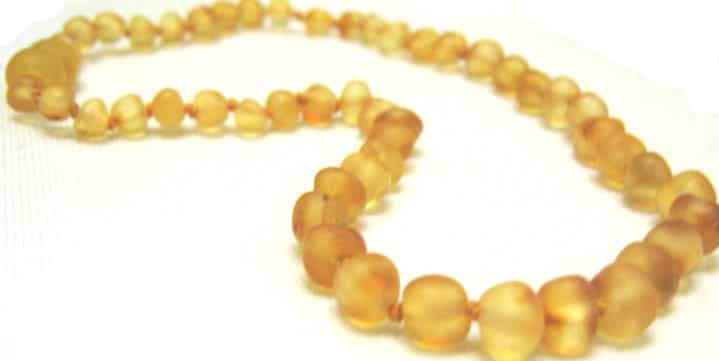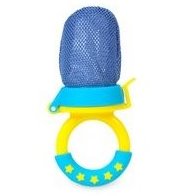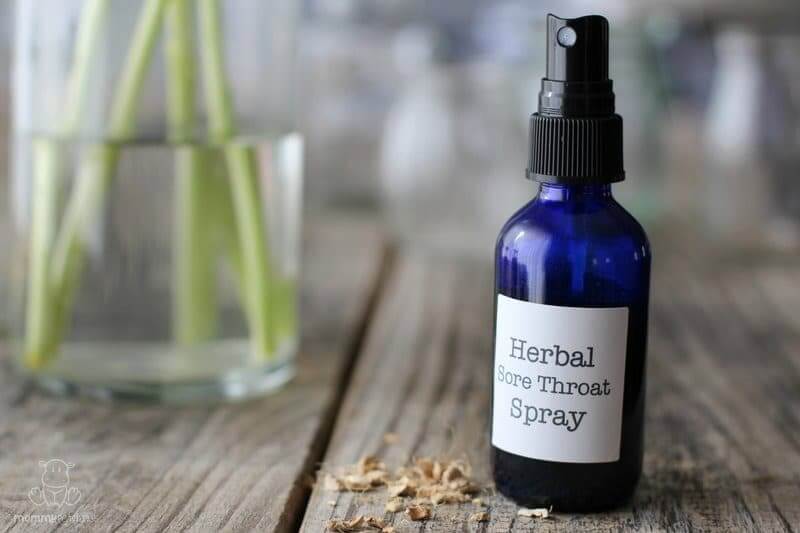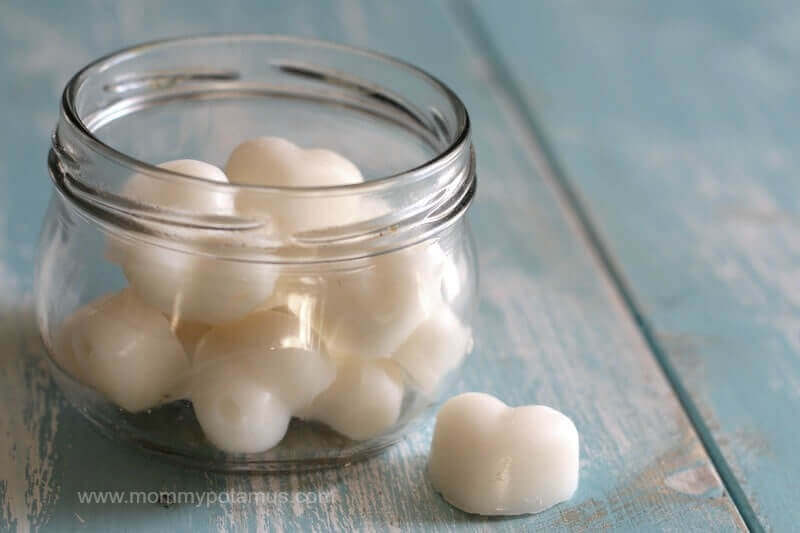


Have you ever wondered which teething remedies work best and which ones are just quackery? I have, but honestly there have been times where I would have tried anything, ANYTHING . . . even a placebo effect would have been welcome! Fortunately I’ve made some great finds along the way, which I’m sharing with you today.
Teething Necklaces

Skeptical? Many people are, but these are the real deal. Teething necklaces made from amber resin contain succinic acid, a natural painkiller that is released when warm skin touches the beads.
When you’re shopping around keep in mind that some say amber which is light in color contains the most succinic acid. Also, necklaces are not “supposed” to be worn at night, but obviously that’s when babies are usually most uncomfortable when teething. Most moms DO leave them on all the time (except bathtime) and just make sure that the necklace fits snugly so that it’s not likely to get caught on anything. It would be irresponsible for me to tell you what to do, but I’m sure you know what’s best for your little one. 🙂
I recommend the raw 100% baltic amber teething necklace sold by Mama Natural.
Chiropractic Adjustments
This helps by reducing cortisol levels and increasing white blood cell counts, which reduces stress and promotes healing for inflamed gums.

Munchkin Fresh Food Feeder
We put ice in ours and let our kids slurp happily at the dinner table, in the car . . . just about anywhere, really! I guess it really is the little things. 🙂 You can check them out here.
Celery and Carrots
Celery is said to have an analgesic effect and both can be frozen to boost their soothing powers. Note: Many moms use this on babies that don’t have any teeth visible because they think it’s unlikely the baby will be able to bite off any pieces and possibly choke. Others use them with babies that have teeth and supervise carefully. Please exercise caution.
Did I miss something? Tell me your favorite teething remedy below!
Want more research-backed natural remedies?
No problem, I’ve created a free ebook for you – Kitchen Apothecary: 25+ Natural Remedies Using Ingredients From Your Pantry – as a gift for signing up for my newsletter. You’ll also get updates when I post about safe essential oils for pregnant/breastfeeding mamas, exclusive gifts and coupons (I was able to give away a jar of free coconut oil to anyone who wanted it recently!), plus other goodies.
Sign up using the form below.




